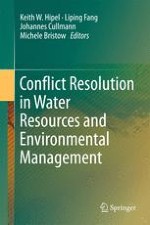2015 | OriginalPaper | Buchkapitel
16. Impact of Climatic and Anthropogenic Factors on Groundwater Irrigation in South India
verfasst von : T. Mohanasundari, R. Balasubramanian
Erschienen in: Conflict Resolution in Water Resources and Environmental Management
Aktivieren Sie unsere intelligente Suche, um passende Fachinhalte oder Patente zu finden.
Wählen Sie Textabschnitte aus um mit Künstlicher Intelligenz passenden Patente zu finden. powered by
Markieren Sie Textabschnitte, um KI-gestützt weitere passende Inhalte zu finden. powered by
